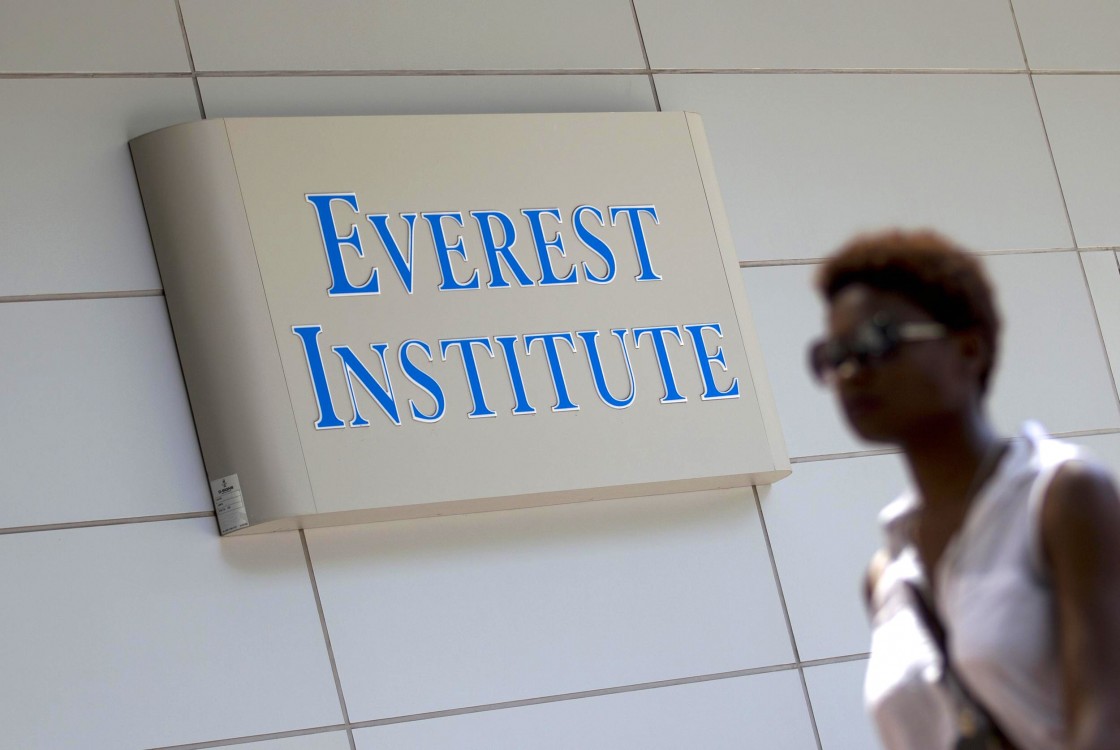
Controversial for-profit giant Corinthian Colleges said Sunday it is closing the doors of its remaining 28 schools, capping the year-long collapse of one of the country’s largest career college chains.
The closure will leave some 16,000 students without certificates or degrees but with a good chance of having their federal student loans forgiven. Corinthian said it is working with other schools to find a home for its displaced student body, but those efforts depend on the cooperation of the institutions and the Education Department.
“As Corinthian closes its doors for good…department staff will immediately begin outreach to Corinthian students to review all their options, which may include loan discharges for students whose school closed,” Undersecretary of Education Ted Mitchell said in a statement. “What these students have experienced is unacceptable.”
Corinthian, which runs Everest Institute, Wyotech and Heald College, has spent the last year in a downward spiral. Amid allegations of falsified job placement records and graduation rates, the Education Department cut off the schools’ access to federal aid last June, forcing Corinthian to sell or close its campuses. The government also slapped Corinthian with a $30 million fine earlier this month for misrepresenting the rates at which graduates land jobs, a charge the school denies.
But that’s only a part of Corinthian’s problems. The school is fighting a $500 million lawsuit filed by the Consumer Financial Protection Bureau in September accusing Corinthian of steering students into high-cost loans. And state attorneys generals from Massachusetts to California have either launched investigations or filed lawsuits of their own.
Corinthian chief executive Jack Massimino blamed the avalanche of legal and regulatory action for scuttling negotiations to sell Heald College and an arrangement to allow Everest College and WyoTech students in California complete their educations.
“The current regulatory environment would not allow us to complete a transaction with several interested parties that would have allowed for a seamless transition for our students,” Massimino said in a statement. “We have attempted to do everything within our power to provide a quality education and an opportunity for a better future for our students.”
Since the Education Department pulled its federal funding, Corinthian has been trying to wind down its campuses. ECMC Group, which runs one of the biggest debt collectors used by the Education Department, paid $24 million for more than half of Corinthian’s 107 campuses in November. But when the deal closed in February, ECMC refused to purchase three of the Everest campuses, according to Corinthian officials, who declined further explanation. Officials from ECMC could not be reached for comment.
Meanwhile, Corinthian said the company has been in talks “with several parties” to sell Heald College, which was one of the schools at the center of Education Department’s investigation that resulted in the $30 million fine.
The department found 947 cases of false placement rates given to students and accreditors. In some instances, Heald Colleges paid temp agencies to hire its graduates to work as few as two days, and counted those students as having found jobs. The government said there was even a case of one campus counting a 2011 graduate of an accounting program as employed in the person’s chosen field—based on a job behind the counter at Taco Bell.
Corinthian is contesting the basis for the fine. The company said its job placement and graduation rates compared favorably with community colleges. It also said that roughly 40 percent of its students attended traditional colleges where their needs were not met before heading to a Corinthian school.
“Colleges like ours fill an important role in the broader education system and address a critical need that remains largely unmet by community colleges and other public sector schools,” Massimino said. “Our schools did a good job for the students they served.”
Many Corinthian students have said they disagree, saying the schools saddled them with mounds of debt and worthless degrees. These students have also criticized the government for allowing the schools to remain open for so long.
“Corinthian Colleges was not a school chain but a fraud factory, propped up by the Department of Education and taxpayer money for far too long,” wrote a group of Corinthian students waging a debt strike and refusing to pay their loans in a statement regarding the closure.
About 400 Corinthian students have filed what’s known as defense to repayment claims. It’s an appeal to the Education Department to forgive their federal loans on the grounds that Corinthian broke the law. Nine state attorneys general are backing the students’ claims.
“The time has come for the Education Department to do the right thing. The closing of these campuses is just another step toward the full discharge of current and former Corinthian students’ debts,” the strikers wrote.
The department has broad authority to cancel loans when colleges close or commit fraud against students. Granting the discharges could mean the loss of billions of dollars in taxpayer money and set a precedent for future requests for loan forgiveness. But some lawyers say that state and federal lawsuits against Corinthian present strong evidence that strengthens the strikers’ cases.
The stunning collapse of Corinthian arrives amid turmoil in the for-profit industry. Career colleges are broadly facing enrollment declines and regulatory scrutiny. Late last year, the Education Department unveiled rules aimed at limiting the amount of debt students amass in career-training programs. A trade group representing 1,400 for-profit college has filed a lawsuit against the government over the rule.
Undersecretary Mitchell said the department will be “working with Congress to improve accountability and transparency in the career college industry.” He went on to say the “administration will continue to work to make a college degree affordable for all students, to hold colleges accountable, and to safeguard the interests of taxpayers.”
3 WAYS TO SHOW YOUR SUPPORT
- Log in to post comments












